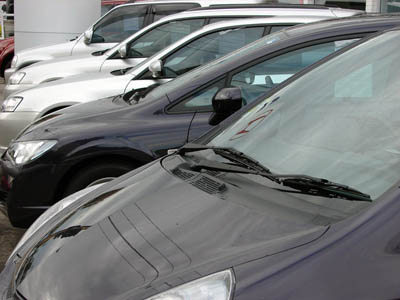Australia flags tariff cut for car imports
 Sydney - Tariffs on imported cars would be halved to 5 per cent if Prime Minister Kevin Rudd accepts the recommendations of a panel he appointed to study Australia's domestic automotive industry.
Sydney - Tariffs on imported cars would be halved to 5 per cent if Prime Minister Kevin Rudd accepts the recommendations of a panel he appointed to study Australia's domestic automotive industry.
The budget for building a "green car" locally would double to 1 billion Australian dollars (880 million US dollars), Industry Minister Kim Carr said Friday when releasing the report.
"The Rudd Labor government firmly believes that there is every reason to be optimistic about the future of the nation's automotive industry if the right policy decisions are made now," Carr said.
The recommendation to hold firm to the previous government's tariff-reduction timetable came as a surprise. The Labor Party's union backers had urged Rudd to raise protection for an industry that last year employed 64,000 people and turned out 335,000 vehicles.
Carr, who said there were 11 car-manufacturing nations and that all received protection, is expected to endorse a new package of subsidies for the industry euphemistically called the Global Automotive Transition Scheme.
The government-appointed Productivity Commission has argued against further subsidies. It estimates that taxpayers fork out 300,000 Australian dollars each year for every car industry job. The subsidies are worth around 2.8 billion Australian dollars annual.
Earlier this year, Australia went from having four manufacturers to three when Mitsubishi Motor Corp announced it would close and leave the field to Toyota Motor Corp, GM Holden Ltd and the Ford Motor Co.
Earlier this year, Toyota was promised a subsidy of 70 million Australian dollars for building hybrid petrol-electric Camrys at its Melbourne factory. Carr also promised to ditch the policy of competitive tendering and buy thousands of those vehicles for the government fleet.
Doubling the money in the green car fund will disappoint the Productivity Commission, which said the spending would "likely encourage some buyers to switch from taxed, more efficiently produced, imported, hybrid and fuel-efficient vehicles to subsidized, higher-cost, locally produced ones - without markedly increased green car sales overall."
The three remaining carmakers have seen their share of the local market fall over the last 10 years from 44 per cent to 20 per cent. Partly this has reflected lower tariffs and partly the difficulty in selling locally the petrol-thirsty six-cylinder cars that underpin a sparkling export performance in the Middle East.
Around a third of total annual production is sent abroad. (dpa)